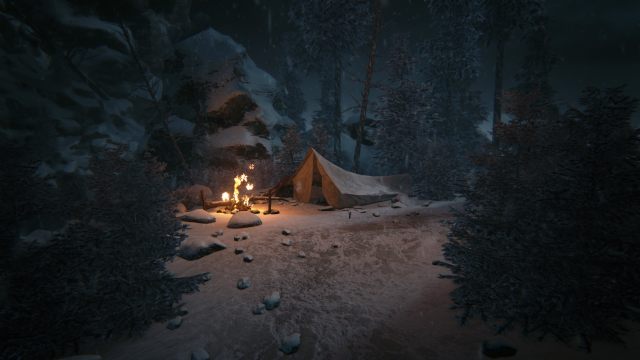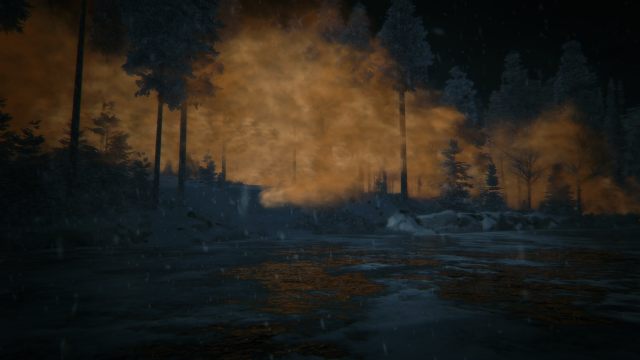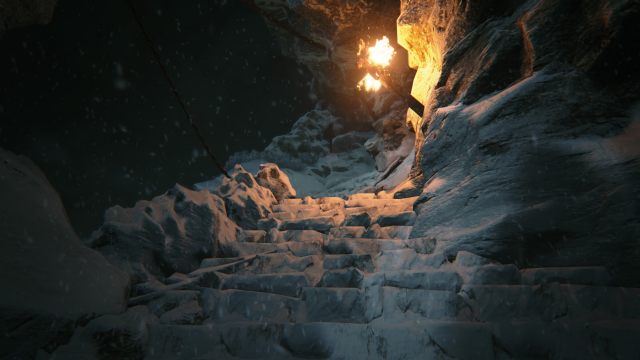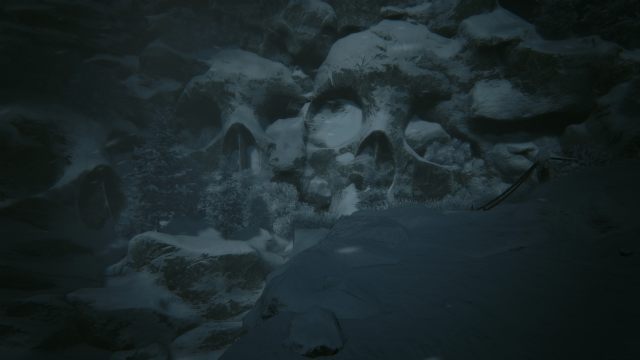Kholat Review: Only For Fans of Dear Esther and The Vanishing of Ethan Carter
The Polish developers from IMGN.pro know how to draw attention to their debut game entitled Kholat. They offer an intriguing story inspired by authentic events that remain shrouded in mystery to this day, and Sean Bean. What came out of this mix?
The review is based on the PC version.
- Amazing atmosphere;
- Very good music;
- Evocative locations;
- Freedom of exploration.
- Saved game system;
- The game sometimes becomes tedious;
- Only for fans of games like Dear Esther.
One has to admit that developers from Poland are on a streak right now, providing us with good or even sensational titles. Apart from the obvious example of The Witcher 3 we can mention titles such as Lords of the Fallen, The Vanishing of Ethan Carter and This War of Mine. IMGN.pro decided to have a go at joining this lucky club with their debut production entitled Kholat. The very idea of using a rather obscure, and at the same time authentic and mysterious story as a central theme of the game seems to be a recipe for success. In February 1959, a group of students led by Igor Dyatlov went hiking in the Ural mountains. When the group failed to return as scheduled, a rescue team went looking for them, unveiling a gruesome truth. All hikers were found dead – some of hypothermia, others of serious internal injuries. The evidence indicated that the group abandoned their tent in panic, not completely clothed and barefoot at 0 °F, and tried to take refuge in the trees, seemingly running from an unknown threat. The cause of the hikers' sudden escape and the injuries they suffered was never explained, and therefore various theories and hypotheses abounded regarding the fate of Dyatlov's group, ranging from quite mundane to those suggesting paranormal activity. In Kholat, we recreate the route of the tragic expedition, starting our adventure at the railway station in a town called Ivdel just as Dyatlov and his companions did.
An interactive book
If anyone expected Kholat to be a survival horror, they'll be sorely disappointed. There is no action or use of objects; we won’t even find simple puzzles to solve. Kholat is probably the second – after Dear Esther – representative of a genre that consists in unraveling a story only by wandering around the area. In a sense, it's an interactive book whose pages we have to collect ourselves, and gathering them is basically the only activity that we perform in the game while freely traversing the open, fairly vast world. During our expedition we find notes made by the students, the journal of the rescue team, as well as various press articles and letters concerning the phenomena that have been long present in the region. To complete the game we only have to find some of them, but if we spend enough time on the exploration, we will learn more interesting facts and trivia. It's worth the effort because the storyline itself doesn't take more than 4-6 hours depending on how many notes we collect and how often we get lost in the inhospitable surroundings. The navigation with the use of a map and a compass is not especially complicated, but several times I found myself walking in circles; in moments like this the carefully woven atmosphere vanishes, and the game becomes a little frustrating. The difficulty level proves to be rather moderate and most likely depends on our performance in traversing the area. Orange specters that can kill us appear very rarely, and if we don't stand paralyzed like a rabbit caught in the headlights we should have no problem escaping them – it only takes a few seconds. In two scripted moments, when we suddenly have to run or hide, the game suggests a place or a direction of escape in a subtle and rather clever manner.
It’s freezing and gloomy …
In terms of graphics, Kholat isn't as stunning as e.g. Ethan Carter – the objects are not too rich in detail, and the forest and mountains during a night snowstorm don't offer too much to admire. Still, the visuals show a certain artistic concept and build an intriguing atmosphere. The snow-covered skull-shaped rocks, thickets, and hanging bridges bathed in moonlight create an amazing, eerie aura. Every now and then we reach a special location relevant to the plot. Whether a burnt forest or a strange huge tree, each such place leaves us with a lasting impression. If we're familiar with the materials available about the tragedy of Dyatlov's group, we'll see that the tent of the members of the expedition which we find during the game as well as its surroundings and old skis stuck in snow look exactly like they do on the original photos taken during the rescue operation. The atmospheric graphics are accompanied by very good sound and amazing music. The blowing wind, water dripping in caves, and ominous howling in the distance contribute to the heavy, gloomy aura that surrounds us throughout the game. The song performed during the end credits immediately makes us think of Silent Hill. It’s no wonder – the authors recruited Mary Elizabeth McGlynn, whose poignant pieces accompanied the famous horror franchise, and the one used in Kholat is just as good!
… but not too creepy
That's the real question – is Kholat a horror game? Is it able to creep us out? It's certainly a gloomy tale that includes some horror elements. We're dealing with ghosts, powerful forces, and two or three classic examples of "scary stuff". On the one hand, there's no sense of constant threat, but one cannot deny that the game is characterized by a well-created heavy and sinister atmosphere, and our expedition in the mountains is hardly a walk in the park. I didn't really feel the effects of the advertised "fear manager”. Heavier aura is achieved by a change in music or scripts, and seems to depend – as it does in other productions – on our getting to a certain place. The story doesn’t unravel in an overly simple way – the notes of the expedition members are quite clear, but the narrator speaks in a rather enigmatic fashion, and we have to piece together the various elements of the story ourselves as well as define our role in all this. The ending is built in a similar way – for some it may be disappointing, while others will find room for endless discussion. As for the narrator, I'm not sure whether Sean Bean contributed remarkably to this production. He gives a decent performance, but sometimes it feels a bit like listening to a radio play. A game that relies so heavily on its unique climate is basically begging to have a Russian audio version with subtitles, which would definitely help delve a little deeper into the world and the atmosphere of the game.
The biggest problem, however, is the saved game system – saving is automatic in places where we find notes, which makes it quite irregular, and what’s even worse it only has one slot! It's also a good idea to carefully read all the notes immediately after finding them, because just before the finale we lose access to them and the only way to look at them again is to complete the adventure one more time. It can sometimes be frustrating that our character cannot jump on even a small rock, but these restrictions (including resting after a sprint) seem to be necessary so as not to finish Kholat too fast.
How much game is in the game?
It is not easy to evaluate a game that boldly delves into a recently defined genre, and for some may not even be a game. Kholat is a bit like a book containing more illustrations than text, and a bit like a movie seen in the cinema which we see once without rewinding. It walks the thin line between drawing our attention thanks to intriguing sites and the wonderful atmosphere, and boring us with the wolves howling on loop for just a little bit too long or getting lost during our wanderings. As a competitor of Dear Esther it looks quite good, but if we compare it to The Vanishing of Ethan Carter, Kholat has substantially less to offer – its saving grace is the amazing, eerie atmosphere and the location rarely featured in games. This is a title that won't appeal to everyone; even lovers of adventure or horror might not warm up to it. Still, one cannot deny that there's something in the game that keeps us progressing. Sometimes we'll be delighted, sometimes we'll be frustrated, but when you consider that this is the first work of the studio, which, by default, is not about the action or frantic clicking, you might want to give Kholat a chance and personally experience the expedition to the Dead Mountain.
Darius Matusiak | Gamepressure.com

Darius Matusiak
Graduate of the Faculty of Social Sciences and Journalism. He started writing about games in 2013 on his blog on gameplay.pl, from where he quickly moved to the Reviews and Editorials department of Gamepressure. Sometimes he also writes about movies and technology. A gamer since the heyday of Amiga. Always a fan of races, realistic simulators and military shooters, as well as games with an engaging plot or exceptional artistic style. In his free time, he teaches how to fly in modern combat fighter simulators on his own page called Szkola Latania. A huge fan of arranging his workstation in the "minimal desk setup" style, hardware novelties and cats.
more
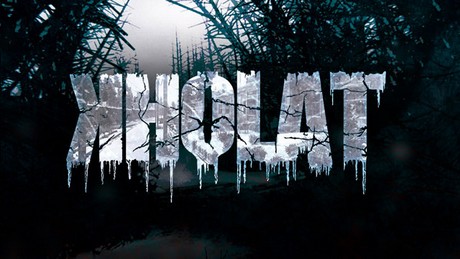
Kholat Review: Only For Fans of Dear Esther and The Vanishing of Ethan Carter
game review
The Polish developers from IMGN.pro know how to draw attention to their debut game entitled Kholat. They offer an intriguing story inspired by authentic events that remain shrouded in mystery to this day, and Sean Bean. What came out of this mix?
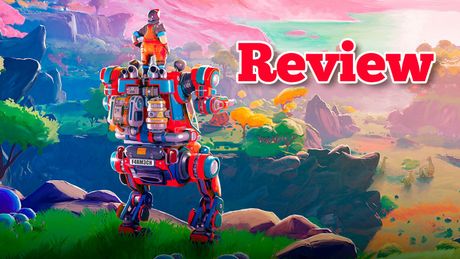
Lightyear Frontier Made Me Want to Fly into Space and Listen to Country Music
game review
Are you looking for a game to calm your frazzled nerves? The perfect candidate lies before you - Lightyear Frontier, where you'll build a thriving space farm.
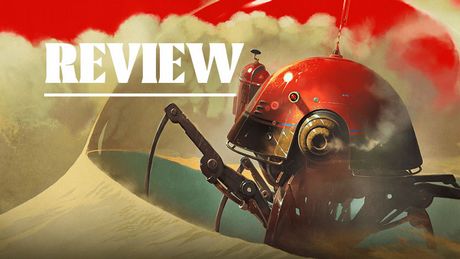
The Invincible Review - An Unexpected Gem Straight From Outer Space
game review
The Invincible is a short, immersive, narrative-driven game boasting a stunning art style and based on Stanislaw Lem's classic. The long awaited gaming experience inspired by Lem is no doubt an unexpected, late hit of 2023.

